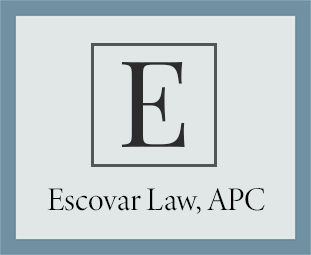On June 5, 2020, the California Court of Appeal, Second Appellate District, certified for publication a new appellate opinion analyzing issues pertaining to Penal Code section 1473.7, in People v. Josefina Ruiz, Appellate Case No. B296742.[1]
The defendant (appellant) in this matter was arrested in 1991 after 19 grams of cocaine and approximately $4,100 were found in a duffle bag in her room after law enforcement executed a search of her home. Subsequently, the defendant pled no contest to possession for sale of cocaine base and executed a plea waiver form in which she initialed next to an advisement stating: “I understand that if I am not a citizen of the United States, the conviction for the offense charged may have the consequences of deportation, exclusion from admission to the United States, or denial of naturalization pursuant to the law of the United States.” (Italics added).
In 2017, Penal Code section 1473.7 was enacted and provided a mechanism for the defendant to seek to vacate this controlled substance conviction which was causing her immigration prejudice. Shortly after the Statute’s enactment, Ms. Ruiz filed a motion for relief. Unfortunately, this motion filed on her behalf incorrectly relied on an argument that Ms. Ruiz’ conviction should be vacated because she was not adequately warned before pleading guilty to the conviction that it may result in deportation. However, clearly, Ms. Ruiz had been provided this advisement, as she initialed next to this exact advisement on a waiver form at the time of her plea. Thus, Ms. Ruiz’ motion to vacate her conviction was denied.
In 2019, after trial courts throughout California were incorrectly interpreting Penal Code section 1473.7 as requiring a claim of ineffective assistance of counsel be proven, Penal Code section 1473.7 was amended to clarify the basis for relief and to expand the number of non-citizen defendants that would be eligible for relief from prejudicial convictions, as originally intended by the Legislature.
In 2019, after the effective date of the Statute’s amendments, Ms. Ruiz filed a new motion to vacate her conviction arguing that she was not advised at the time of her plea that as a result of her plea in this case she would be “rendered permanently ineligible to ever become a legal resident of the United States.” The trial court denied the motion and found it to be an “untimely motion for reconsideration.” Ms. Ruiz appealed.
In its Opinion, the Court of Appeal agrees with the defendant’s argument that she did not receive an adequate advisement about the immigration consequences of her plea. Although Ms. Ruiz received a sufficient advisement pursuant to the requirements of Penal Code section 1016.5, according to the Court of Appeal, the words “may have” in a Section 1016.5 immigration advisement are “not an adequate immigration advisement for defendants charged with serious controlled substance offenses.” In fact, the Court of Appeal held that these defendants must be advised that they “will be deported, excluded, and denied naturalization as a mandatory consequence of the conviction.” According to the Court of Appeal, the advisement that Ms. Ruiz was given stating that immigration consequences “may result” was insufficient given the nature of her offense. Thus, the Court of Appeal determined that the trial court ruling on the motion in 2017 erred in denying relief since Ms. Ruiz was not advised that the immigration consequences were mandatory.
Further, the Court of Appeal determined that the trial court ruling on the 2019 motion erred in deciding that Ms. Ruiz’ 2019 motion, brought after the 2019 amendments to Penal Code section 1473.7, was barred. According to this Court of Appeal, the “Legislature did not intend that motions brought under the new statutory standard would be denied because courts had denied earlier motions to vacate brought on different grounds.” The amendments to the Section provided Ms. Ruiz with an expanded right to show that her first counsel erred in 1991, that her second counsel erred in 2017, and that she does not have to meet the ineffective assistance of counsel standard that was incorrectly construed to be required for relief when the Statute was first enacted and litigated.
Ultimately, the matter was remanded to the trial court with an order to consider Ms. Ruiz’ motion on the merits.
DISCLAIMER:
The information in this blog post (“post”) is provided for general informational purposes only and may not reflect the current law in your jurisdiction. No information contained in this post should be construed as legal advice from Escovar & Avila, LLP or the individual author, nor is it intended to be a substitute for legal counsel on any subject matter. No reader of this post should act or refrain from acting on the basis of any information included in, or accessible through, this Post without seeking the appropriate legal or other professional advice on the particular facts and circumstances at issue from a lawyer licensed in the recipient’s state, country or other appropriate licensing jurisdiction. The information on this website is a communication and is for informational purposes only. The facts of every case are unique and nothing on this page or on this website should be taken as legal advice for any individual case or situation. The information on this website is not intended to create an attorney-client relationship and viewing of this information does not create an attorney-client relationship. The result portrayed in this advertisement was dependent on the facts of this case. Results will differ if based on different facts.
[1] See full opinion at: https://www.courts.ca.gov/opinions/documents/B296742.PDF

